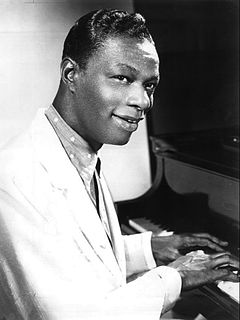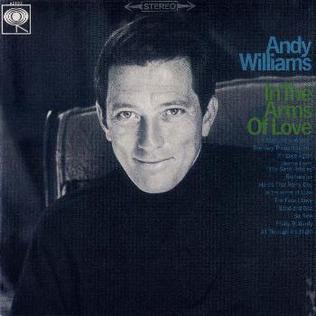Related Research Articles

"Rock Around the Clock" is a rock and roll song in the 12-bar blues format written by Max C. Freedman and James E. Myers in 1952. The best-known and most successful rendition was recorded by Bill Haley & His Comets in 1954 for American Decca. It was a number one single for two months and did well on the United Kingdom charts; the recording also reentered the UK Singles Chart in the 1960s and 1970s.

Bill Haley & His Comets were an American rock and roll band, founded in 1952 and continued until Haley's death in 1981. The band was also known as Bill Haley and the Comets and Bill Haley's Comets. From late 1954 to late 1956, the group placed nine singles in the Top 20, one of those a number one and three more in the Top Ten. The single "Rock Around the Clock" became the biggest selling rock and roll single in the history of the genre and retained that position for some years.

Music for the Jilted Generation is the second studio album by English electronic music group the Prodigy. It was first released in July 1994 by XL Recordings in the United Kingdom and by Mute Records in the United States. Just as on the group's debut album Experience (1992), Maxim Reality was the only member of the band's lineup—besides Liam Howlett—to contribute to the album.
Let Me Go, Lover!", a popular song, was written by Jenny Lou Carson and Al Hill, a pen name used by Fred Wise, Kathleen Twomey, and Ben Weisman. It is based on an earlier song called "Let Me Go, Devil", about alcoholism.
"Gilly Gilly Ossenfeffer Katzenellen Bogen by the Sea" is a popular song written by Al Hoffman and Dick Manning and published in 1954. It was a hit in 1954 in both the United States and United Kingdom, albeit for different artists.
"I Can't Tell a Waltz from a Tango" is a popular song, written by Al Hoffman and Dick Manning and published in 1954. The best-known version in the United States was recorded by Patti Page; the best-known version in the United Kingdom by Alma Cogan, both of which were recorded in 1954. The Pee Wee King Orchestra recorded the song, reviewed as a "right smooth job" in the same month as the Patti Page's charting of the song.
"¿Quién será?" is a bolero-mambo written by Mexican composer Pablo Beltrán Ruiz. Beltrán recorded the song for the first time with his orchestra in 1953. Pedro Infante, for whom the song was written, recorded it in 1954.

Dick Manning was a Russian-born American songwriter, best known for his many collaborations with Al Hoffman. Manning composed the first full-length musical to be broadcast on television. The Boys From Boise aired on the DuMont Television Network in 1944.
"The Naughty Lady of Shady Lane" is a popular song written by Sid Tepper and Roy C. Bennett.
Jilted is the past tense of jilt and may refer to:
"You Can't Be True, Dear" is a popular German song.

"Crazy Man, Crazy" was the title of an early rock and roll song written by, and first recorded by Bill Haley & His Comets in April 1953. It is notable as the first recognized rock and roll recording to appear on the national American musical charts, peaking at #12 on the Billboard Juke Box chart for the week ending June 20, 1953, and #11 for two weeks on the Cash Box chart beginning for the week of June 13.
The Stargazers were a British vocal group, jointly founded in 1949 by Cliff Adams and Ronnie Milne. Other original members were Marie Benson, Fred Datchler and Dick James.

"Take Good Care of My Baby" is a song written by Carole King and Gerry Goffin. The song was made famous by Bobby Vee, when it was released in 1961.
"I Only Have Eyes for You" is a romantic love song by composer Harry Warren and lyricist Al Dubin, written for the film Dames (1934) when Dick Powell introduced it. Several successful recordings of the song were made in 1934 and later there were charted versions by The Flamingos (1959) and Art Garfunkel (1975).
"I See the Moon " is a popular song, written by Meredith Willson in 1953.
"Takes Two to Tango" is a popular song written by Al Hoffman and Dick Manning and published in 1952.

"Mona Lisa" is a popular song written by Ray Evans and Jay Livingston for the Paramount Pictures film Captain Carey, U.S.A. (1950). The title and lyrics refer to the renaissance portrait Mona Lisa painted by Leonardo da Vinci. The song won the Oscar for Best Original Song in 1950.

In the Arms of Love is the nineteenth studio album by American pop singer Andy Williams and was released on December 19, 1966, by Columbia Records and was the last of twelve consecutive Williams studio LPs produced by Robert Mersey.
Baby, Baby, Baby is a 1953 hit song by Teresa Brewer from the film Those Redheads from Seattle. The song was written in 1950 by Jerry Livingston and lyricist Mack David. The song was sung by Brewer in the role of a singer, who appears through a red curtain line of dancing girls and commences the lyrics: "Baby, Baby, Baby love me love me do, Baby, Baby, Baby love me love true." The song reached No.12 in the US hit parade in December 1953. Coral released the record first in 1953 as 9-61067 with the B-side "I Guess It Was You All The Time", written by Hoagy Carmichael and Johnny Mercer, then in 1954 as an EP, EC 81086 with A2: "Jilted" Robert Colby and Dick Manning, Track B1: "Chicago Style" James Van Heusen and Johnny Burke, and B2 "My Sweetie Went Away " written by Roy Turk, and Lou Handman.
References
- ↑ "Original versions of Jilted written by Dick Manning, Robert Colby". Secondhandsongs.com. Retrieved 1 May 2021.
- ↑ Whitburn, Joel (1973). Top Pop Records 1940-1955. Record Research.